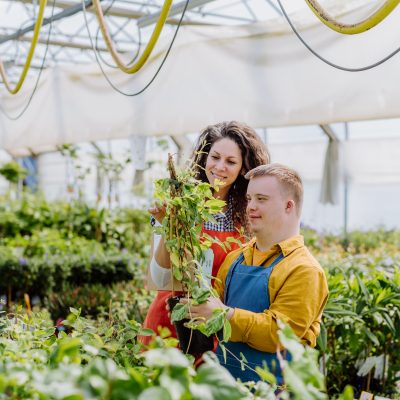Better Together: Supporting perinatal and infant mental health services

The well-being and social emotional development of infants, young children and their carers is important to all Australians. Various studies have shown that appropriate interventions at an early stage not only benefits young children and their families, but also reduces the economic costs placed on the public sector at a later stage. Intervention can start as early as conception.
It is imperative that the family and community services supporting infants and young children are integrated across levels of service delivery and sectors. In a world with rapid changes, such systems must also be responsive to changing individual, family, community and environmental needs.
The Better Together project reports on research conducted on the System of Care for Perinatal Infant Mental Health (PIMH) in the Cities of Joondalup and Wanneroo in Perth’s northern suburbs and captures initial layers of information about this system.
Better Together was developed in collaboration with Edith Cowan University (ECU) and Michigan State University, and funded by the Western Australian Primary Health Alliance (WAPHA). The project was initiated by Distinguished Professor Hiram Fitzgerald from Michigan State University when he visited Perth. Hiram aspired to engage a whole community in the principles of PIMH practice rather than trying to change one area at a time. Professor Fitzgerald emphasised the need for a community – and systems-based approach.
“As higher education strives to meet the UNESCO Global University Network for Innovation’s challenge to re-define social responsibility, it is building partnerships with community that embrace collaborative inquiry, shared knowledge, and co-creative ingenuity in to tackle and of the world’s most wicked problems. Wicked problems involve networks of interacting systems, and increasingly it is clear that theories and approaches of the past are insufficient to unravel or transform problems that are embedded in social, economic, political and racial inequalities,” Hiram said.
Led by Rochelle Matacz, Manager and Clinical Supervisor of ECU’s Pregnancy to Parenthood Clinic, the Better Together project mapped how services in Wanneroo and Joondalup interact to enhance the quality of prenatal and infant mental health services for the community.
Consumers and service providers were invited to work with the research team over 12 months to design, implement and evaluate the network of services that families with infants and young children access. Three sets of factors that influence system functioning were addressed:
- Factors that help or hinder system networking;
- Factors related to workforce development, training pathways and resource availability;
- Factors that could increase awareness of perinatal and infant mental health (PIMH) referral pathways, good practices, and interventions.
In total, the report analysed data from over 110 workers from 78 agencies and organisations and from 53 consumers of those services.
The two cities are vastly different in their demographics. Joondalup is geographically and social advantaged (an average SEIFA of 9; lowest individual locality SEIFA of 6) with a declining population (-1.5%). Wanneroo has high levels of disadvantage in many of its localities (average SEIFA of 5; 3 localities with SEIFA below 4), with population growth of 24 per cent since 2011, including of children aged 0 to 4 (+16%) and young women aged between 15 to 39 (+18.7%).
The two cities have a higher percentage of migrants than the WA average, mostly from Europe (66.1% in Joondalup; 54.4% in Wanneroo), Asia (13.4%; 24.3%) and Africa (17.4%; 19.0%). In Joondalup, most young migrant women aged between 15 to 39 are English speaking, whilst in Wanneroo there are three localities with up to 10% of women aged between 15 to 39 who have no or
poor spoken English.
Other key findings from the report include:
- Social network analysis indicated the level of trust between agencies was low to moderate, as was the degree to which they valued one-another. Data suggests many more connections are possible and there is room to improve system cohesiveness.
- Agency personnel had very little knowledge of services provided by other services.
- There were sharp contrasts between perceptions of success and quality of service between service personnel and families.
- Parent concerns focused on a lack of understanding of what services were actually available to them, lack of assistance making a referral within the system, lack of personnel that met cultural needs, difficulties for vulnerable families in gaining access to services, and differences they felt with respect to power relationships related to socio-economic status and vulnerability.
The research team is implementing key recommendations in the report including building workforce capacity and skills, improving levels of trust and cooperation, and raising awareness of the importance of early intervention and a systems based approach. Recent discussions with key policy makers include Dr Anne Aly MP, Member for Cowan; Colin Pettit, Commissioner for Children and Young People WA; and Tracey Roberts, Mayor for the City of Wanneroo.





